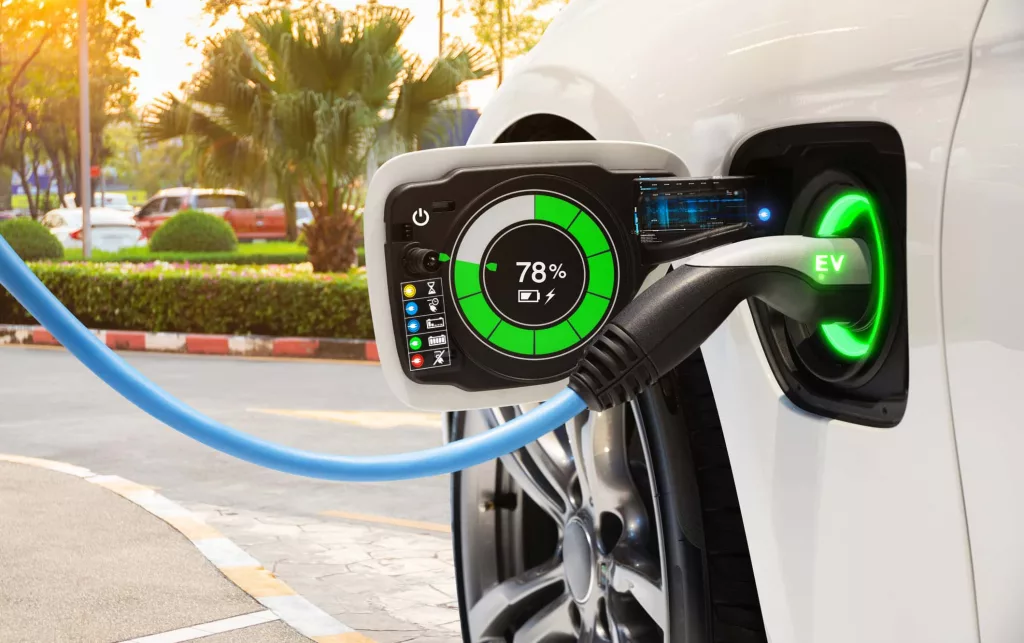A bipartisan effort in the United State Congress today would give a lot more Americans a shot at claiming a substantial tax credit if they purchase an eligible electric vehicle under a new package of legislation they are calling the Driving America Forward Act, and it has overwhelming support from the manufacturing community.
The new bipartisan legislation would expand the electric vehicle and hydrogen fuel cell tax credits going forward. Under current law, consumers may receive a tax credit of up to $7,500 if they purchase an eligible electric vehicle. However, the tax credits begin to phase out permanently once automakers sell over 200,000 units. The Driving America Forward Act raises the cap and allows purchasers of an additional 400,000 vehicles per manufacturer to be eligible for the tax credit.
The legislation was introduced this morning by U.S. Senators Debbie Stabenow (D-MI), Lamar Alexander (R-TN), Gary Peters (D-MI), and Susan Collins (R-ME) along with Congressman Dan Kildee (MI-05), with Stabenow saying, “At a time when climate change is having a real effect on Michigan, today’s legislation is something we can do now to reduce emissions and combat carbon pollution.” She adds, “Our bill will help create American jobs and cement Michigan’s status as an advanced manufacturing hub.”
Senator Alexander concurs, saying, “Ten years ago there were no mass produced electric cars on U.S. highways, and today, there are about one million and automakers are planning to make millions more.” He adds, “The all-electric Nissan Leaf that I bought in 2011 had a hard time getting me from the Capitol to Dulles airport and back. Its real range was about 70 miles. Today’s Nissan Leaf can travel 226 miles on one charge. Investing in American research and technology for better electric vehicles is one way to help our country and the world deal with climate change. I’m glad to cosponsor this important legislation, which will encourage even more production of electric vehicles, create good jobs and boost the economy.”
Michigan Senator Gary Peters contends, “Expanding tax credits for electric vehicles would benefit consumers and our environment,” and adds, “Continued investment in advanced technologies of the future will help Michigan stay at the forefront of global auto innovation, spur job growth and move us toward a more sustainable and competitive transportation future.”
Maine’s Senator Collins points out, “In less than four years, the number of Mainers who own electric cars has more than doubled. This legislation would continue the momentum towards cleaner transportation and help tackle harmful transportation emissions, which produce more than half of Maine’s carbon pollution and threaten our public health, natural resources, and economy.” The Senator adds, “I encourage our colleagues to join us in supporting the Driving America Forward Act to extend tax credits for electric vehicles and hydrogen fuel cell vehicles and make these vehicles more affordable to consumers.”
Congressman Kildee notes, “This bipartisan legislation helps to address the urgent threat of climate change with bold solutions that help to create jobs in Michigan,” and suggests, “Putting more electric vehicles on the road will reduce carbon emissions and support investment in American-made manufacturing. This legislation is a win-win when it comes to protecting our planet and growing our economy.”
Sales of electric vehicles increased by more than 80-percent in 2018 and two manufacturers have already hit the lifetime cap of 200,000 units. Under current law, after an automaker sells 200,000 qualifying vehicles, consumers are eligible to receive the full value of the $7,500 tax credit through the calendar quarter after the cap is hit. The value of the credit to consumers from this automaker then decreases to 50-percent and 25-percent over the next 12 months before being phased out entirely.
The Driving America Forward Act raises the cap by allowing purchasers of an additional 400,000 vehicles per manufacturer to be eligible for a $7,000 tax credit. Consumers can receive the full value of a $7,000 credit through the calendar quarter after the 600,000th vehicle is sold. The value of the credit to consumers from this automaker then decreases to 50-percent before being phased out entirely after six months. The bill maintains the $7,500 tax credit for the first 200,000 units sold.
The Drive America Forward Act also extends the hydrogen fuel cell credit for ten years, through 2028. The legislation is also co-sponsored by U.S. Representatives Don Beyer (VA-08), Earl Blumenauer (OR-03), Brian Higgins (NY-26), Jimmy Gomez (CA-34), Stephanie Murphy (FL-07), Jimmy Panetta (CA-20), Terri Sewell (AL-07), and Tom Suozzi (NY-03).
Senator Stabenow championed the electric vehicle tax credit and the production of alternative vehicles at home in the American Recovery and Reinvestment Act of 2009. She has since led efforts to expand the tax credit and create more opportunities for clean energy manufacturing in Michigan and across the country. In addition to being more energy efficient, electric vehicles produce lower emissions on average than conventional gas vehicles do. An average electric-powered vehicle will produce 3.3 fewer tons of CO2 emissions and burn 480 fewer gallons of gas per year compared to an average gasoline-powered vehicle.
The Driving America Forward Act is supported by 60 organizations including multiple manufacturers.
Shane Karr is Head of FCA’s US External Affairs, and says, “FCA US applauds Senators Stabenow and Alexander’s leadership in supporting electric vehicles,” adding, “Measures like the Driving America Forward Act are needed to help grow market demand for electric vehicles.”
At Ford, the President of Global Operations Joe Hinrichs says, “This bill will help Ford grow our electrified vehicle portfolio, which includes iconic models our customers know and love,” and adds, “Ford is investing $11 billion in electrified vehicles through 2022. Expanding the existing framework gives our U.S. plants the ability to produce smarter, fuel-efficient vehicles for years to come. It also ensures that American manufacturers can stay competitive in this new automotive era.”
At General Motors, President Mark Reuss says, “General Motors believes in an all-electric, zero-emissions future. We are dedicating significant resources and investments to manufacturing and infrastructure here in the United States to drive that vision,” and applauds the move saying, “We appreciate the support and leadership of the Senators and Representatives; the EV tax credit provides customers with a proven incentive as we work to establish the U.S. as a leader in electrification.”
The Auto Alliance’s Interim President & CEO Dave Scheitart says, “We commend Senators Stabenow and Alexander and Congressman Kildee for their leadership on this critical issue,” suggesting, “This bipartisan bill will help drive deployment and consumer acceptance of these energy-efficient, alternative powertrains. Automakers are investing substantially in electric vehicles, with 58 models on sale and more coming, but overall sales remain low. Consumer tax incentives and rebates, as well as charging infrastructure, are key building blocks to help get more of these energy-efficient vehicles on our roadways.”
Environmental groups are also onboard. Luke Tonachel is Director of the Natural Resources Defense Council’s Clean Vehicles & Fuels Group. He says, “These credits accelerate the growth of the U.S. electric vehicle market which helps protect our air and environment while at the same time boosting American clean vehicle innovation and manufacturing jobs.” Tonachel adds, “We are pleased to see bipartisan support for these related goals and hope this proposal will quickly pass.”
At the Sierra Club, Executive Director Michael Brune says, “As we build and grow the clean energy economy, we must continue to invest in tackling the sector that generates the most pollution: transportation.” Brune adds, “With this bipartisan legislation Senators Stabenow and Alexander recognize the opportunities we have by extending the electric vehicle tax credit and putting electric vehicles in the fast lane.”
Even the League of Conservation Voters checks in with Senior Vice President of Government Affairs Tiernan Sittenfeld noting, “LCV applauds Senators Stabenow and Alexander and Congressman Kildee for their bipartisan legislation to extend electric vehicle tax credits,” and adds, “At a time when our communities are feeling climate change’s impacts, electrifying the transportation sector could not be more important. Transitioning to a clean energy economy for all will create jobs and protect our health and communities—especially low income and communities of color who are hit first and worst by the impacts of climate change. While some in Congress are engaging in political stunts to stymie debate about solutions to climate change, LCV is committed to working with members of Congress, like Senators Stabenow and Alexander, Congressman Kildee, and the hundreds of state and local leaders working to solve this crisis.”
Plus, at the Union of Concerned Scientists, the Director of Clean Vehicles Program Michelle Robinson caps it off by saying, “The future is electric. Electric vehicles are much cleaner and cheaper to operate, and we need to help more people enjoy the benefits of this emerging technology,” and concluding, “We applaud this bipartisan effort to invest in a strong and growing electric vehicle market.”






